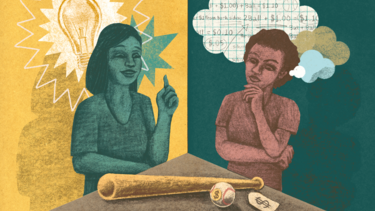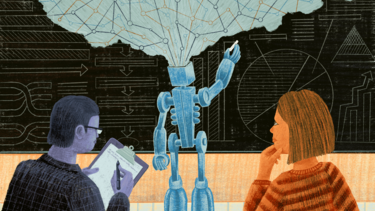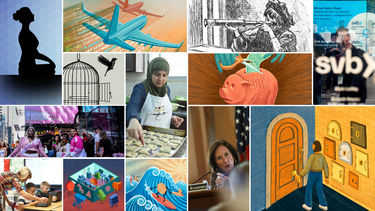Behavioral
Smart Choices for a Smoother Year: Research-Backed Tips for a Better 2026
Yale SOM faculty shared suggestions on creating space for what’s important, cultivating community, and making AI work for you in the new year.

When Do Ads Become Too Deceptive?
Yale SOM’s Deborah Small and her co-authors examine how people judge the ethical acceptability of ads for charities, and find that they are much more bothered by artificiality than objectification or exaggeration—a finding with implications for advertisers of all kinds.

The Fed Is Cutting Rates Soon. Should I Wait to Get a Loan?
Many homebuyers and other borrowers incorrectly believe that they get a lower rate by waiting until a cut becomes official, according to Prof. Kelly Shue. This misconception is so widespread that it can undercut the effectiveness of Fed monetary policy.

Seeing Peer Ratings Pushes Professionals to Align Their Evaluations
New research from Yale SOM’s Tristan Botelho reveals that even savvy professionals tend to defer to the ratings given by their peers who evaluated before them.

Can Reflection Dislodge a Faulty Intuition?
Sometimes our gut is right. But a new study co-authored by Yale SOM’s Shane Frederick shows that when it’s not, the erroneous intuition can be difficult to overrid.

What We Get Wrong about the Effects of Population Growth
New research co-authored by Professor Jason Dana finds that people over-focus on increased consumption without considering the positive effects of increased productivity.

CEOs Invest Less in Corporate Social Responsibility When Their Own Money Is At Stake
A study co-authored by Yale SOM’s Kelly Shue finds that when CEOs have a larger financial stake in their companies, or when they face stronger shareholder oversight, they cut back spending on corporate social responsibility efforts.

The Best Leaders Use Intuition
In an excerpt from her new book, Yale SOM’s Emma Seppälä writes that drawing on instinct as well as analysis can help us make better decisions.

Can ChatGPT Accelerate Social Science Research?
Yale SOM’s Balázs Kovács and his co-authors spent years designing a computer-based method to measure “typicality.” In a new study, they found that ChatGPT could duplicate their results at a fraction of the cost.

Raise the Bar: Research-Based Ideas to Improve Your 2024
Harness your own creativity, learn to leverage Chat GPT, and have some fun are three of the suggestions from our faculty to help you make your new year healthier, more rewarding, and more prosperous.

Our Most-Read Stories of 2023
This year, Yale SOM research examined sustainable investing, the dynamics of social media, the role of race in school discipline, and the complexities of airline pricing. And faculty offered expertise on issues in the news, including the changing workplace, noncompete agreements, the politics of ESG investing, the effectiveness of masks, the collapse of Silicon Valley Bank, and the Barbie movie phenomenon.
